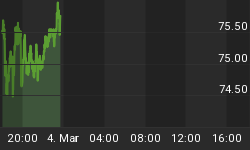The pound is taking a pounding versus the dollar, euro and other currencies as the possibility of a no-deal Brexit looks increasingly likely.
Under new Prime Minister Boris Johnson, the government has strengthened its stance on a no-deal Brexit, which it has said is "now a very real prospect".
The pound - which was trading at about $1.50 versus the dollar before the EU referendum in June 2016 - has fallen by 2.4% since Monday, when a spokesperson for Downing Street said that the UK would not enter talks with Europe unless the so-called Irish backstop is scrapped.
This week’s selloff shows little sign of a rebound, with options markets implying more pain on the horizon. Three-month implied volatility, a contract that expires just before the Oct. 31 Brexit deadline, jumped to the highest since before March 29, the original date for Britain to leave the European Union.
Pound looks weaker as no-deal Brexit looms
A no-deal Brexit would likely involve the construction of barriers to Britain's trade with its biggest international partners.
The probability of that outcome, which most economists state would be severely harmful to the British economy, was seen to have increased as Johnson designated a cabinet loaded with Brexit supporters. That, together with his hard line on rebooting negotiations with the EU, has lowered prospects for a last-minute deal. Related: Positive Economic Data Weighs On Gold
The move will likely lessen UK economic output, which implies the UK is a less profitable bet for global financiers.
It indicates the Bank of England might need to cut rates of interest, which once again implies lower returns on UK financial investments.
Laura Lambie, senior investment director for Investec Wealth & Financial investment, warned that the pound could fall even more if the UK crashed out of the EU without a deal. "I do think that investors are looking at a no-deal as a risk, not a certainty," she said. "That does mean that if we do come out of the EU without a deal, then sterling has further to fall."
By Michael Kern
















